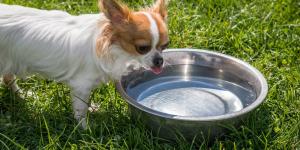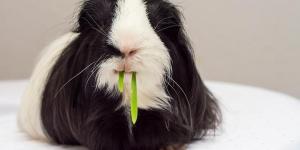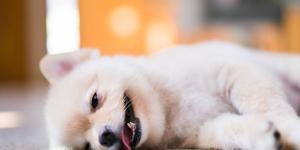Why Is My Cat Not Eating and Drinking?



See files for Cats
When your cat suddenly snubs their food and water, it's natural to worry. We, as loving cat owners, are experts in their routines and habits. While cats are notorious for their discerning palates, a persistent lack of interest in eating or drinking demands attention. From picky palates to hidden health issues, we'll explore the potential culprits and guide you towards the best course of action, whether it's a simple bowl upgrade or a visit to the vet.
In this AnimalWised article, we'll delve into eight common reasons behind your cat's reluctance to eat or drink and provide actionable steps you can take to address each issue.
Oral health issues
Pain or inflammation in your cat's teeth or gums can significantly impact their eating habits, leading to a decline in appetite. This discomfort may stem from various dental issues, including gum disease, cavities, or oral ulcers. Common culprits encompass gingivitis, periodontitis, dental abscesses, malocclusions, or even tumors.
Keeping a close eye on your cat's oral health is crucial. Look for signs such as red or swollen gums, plaque, or tartar accumulation on their teeth, or any mouth injuries. Additionally, be vigilant for indicators like lethargy, weight loss, vomiting, diarrhea, changes in gum color, or other abnormal symptoms.
What to do?
Should your cat refuse food and water for over 24 hours, prompt veterinary consultation is advised. Early detection and treatment of dental issues are crucial for your cat's overall well-being. Treatment options may range from dental surgery and anesthesia-assisted teeth cleaning to antibiotic therapy or other prescribed medications aimed at managing inflammation and pain.
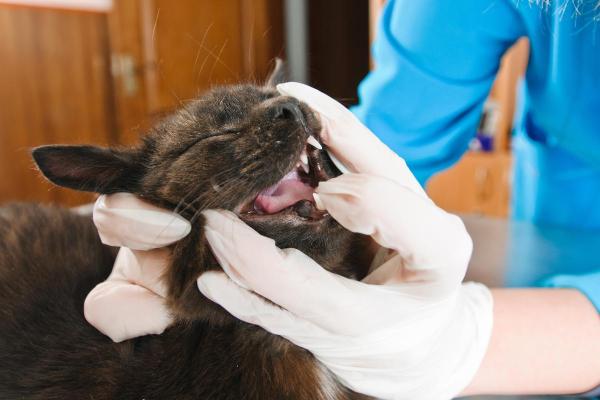
Dislike for the feeder or waterer
While oral health issues are a common reason for a cat's reluctance to eat or drink, the second potential cause could lie with their feeding and watering resources. It's possible that your cat may not be fond of these resources, leading them to avoid using them. To investigate this, observe whether your cat prefers tap water or attempts to consume human food.
Additionally, consider the placement of these resources, as it plays a crucial role. If the feeder and water bowl are situated too close to the litter box or in a high-traffic area, your cat may be deterred from using them.
What to do?
Cats typically prefer drinking from sources with moving water rather than stagnant water. Investing in a fountain with circulating water could be a solution to encourage hydration. Furthermore, not all cats thrive on having food available at all times, as it may become stale and unappealing. Therefore, establishing a consistent meal schedule is recommended.
Lastly, if the issue stems from the location of the resources, relocating them to a quiet area away from the litter box can help create a more inviting feeding environment for your cat.

Respiratory and gastrointestinal diseases
In addition to oral health and feeding conditions, various health issues can impact your cat's eating and drinking habits. Upper respiratory infections, akin to colds in humans, can impair your cat's sense of smell, leading to a loss of interest in food. Similarly, discomfort associated with these infections may deter your cat from drinking water.
Furthermore, gastrointestinal disorders such as gastritis, colitis, pancreatitis, or other digestive system-related diseases can induce nausea and reduce appetite in cats.
What to do?
In cases where your cat displays symptoms such as nasal or ocular discharge, vomiting, diarrhea, or general apathy, it's crucial to promptly seek veterinary care to accurately diagnose the underlying issue.
Meanwhile, ensure your cat is comfortable and has access to clean water, avoiding self-medication. Provide detailed observations to your veterinarian, follow their recommended treatment plan diligently, and monitor your cat's progress closely.
Finally, try to maintain a clean living environment to prevent further complications.
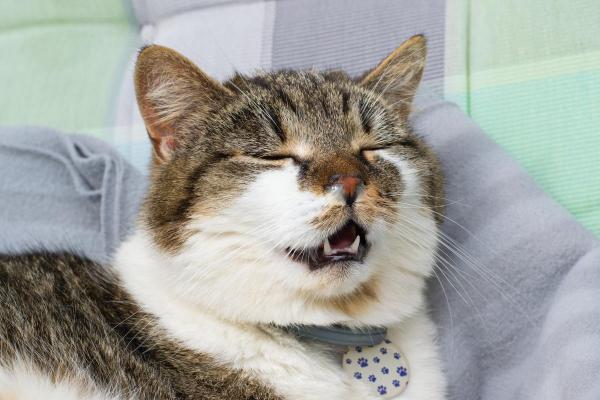
Kidney and liver diseases
Chronic kidney failure (CKF) poses a serious threat to your cat's health, often causing dehydration and decreased appetite. While increased thirst is a common symptom, it might not always be obvious, making early detection challenging.
This progressive condition develops gradually over time, emphasizing the importance of closely monitoring your cat's symptoms and seeking prompt veterinary attention. Early intervention significantly improves the chances of successful management and extended, high-quality life for your furry friend.
Liver problems, such as liver failure, and diseases like diabetes and hyperthyroidism, can also disrupt a cat's metabolism and nutritional balance, resulting in food and water aversion.
What to do?
Recognizing potential health issues in your cat and seeking prompt veterinary help is crucial. Different conditions require specific treatments, making professional guidance essential. Additionally, in some cases, dietary adjustments might be vital for recovery, so consulting a vet ensures your cat receives the most appropriate nutrition.
Read this other article to learn to recognize the symptoms of liver failure in cats.
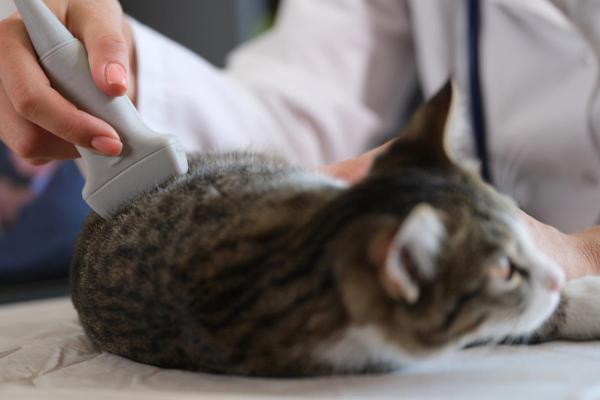
Ingestion of toxic substances
If your cat suddenly loses interest in food and suffers dehydration, beware – poisonous plants or chemicals could be behind it.
Be on high alert for other signs of poisoning, like tremors, vomiting, incoordination, seizures, or dilated pupils. These seemingly unrelated symptoms can indicate your cat has ingested something harmful.
To do
Suspecting your cat has been poisoned and noticing food aversion and dehydration demands immediate action! Delay can be detrimental to their well-being. Here's what you need to do:
- Seek veterinary assistance at once. Do not wait for more symptoms.
- Avoid giving your cat any medications or food without veterinarian guidance. This could worsen the situation.
- Provide as much information as possible to the vet. Describe the suspected toxin, your cat's behavior, and any other relevant details.
Remember, acting swiftly and prioritizing professional veterinary care significantly increases your cat's chances of successful recovery.
For more information on what to do in case of poisoning, be sure to read this other article.
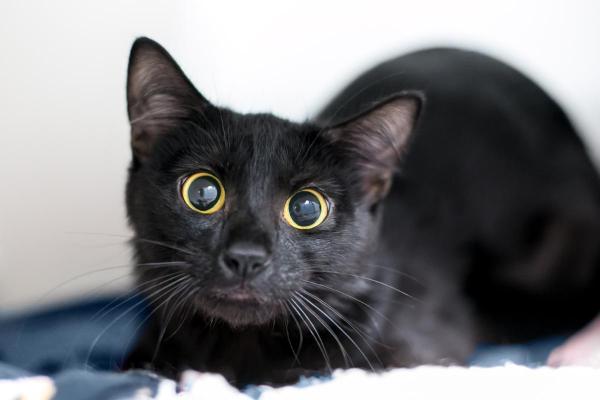
Stress
Cats are creatures of habit, and even minor changes can throw them off balance. Introducing a new pet, moving houses, or simply rearranging furniture can all trigger stress and anxiety, leading to appetite loss. Cats thrive on routine, stability, and predictability, and any deviation can disrupt their eating and drinking habits.
In addition to changes in eating habits, other signs of stress in cats may include urinating in unusual areas, displaying more irritable behavior, or appearing more nervous or withdrawn.
What to do?
First, tray to identify what's causing the anxiety, whether it's a new pet, loud noises, or even a change in furniture. Try to minimize the stressor or provide ways for your cat to cope.
Environmental enrichment can be your secret weapon. Make sure to provide toys, puzzles, and climbing structures to keep your cat mentally and physically engaged. Scratching posts are essential, too.
It is also important to offer comfy hiding spots and perches where they can feel safe and observe their surroundings.
For more information on the most common signs of a stressed cat, be sure to read this other article.
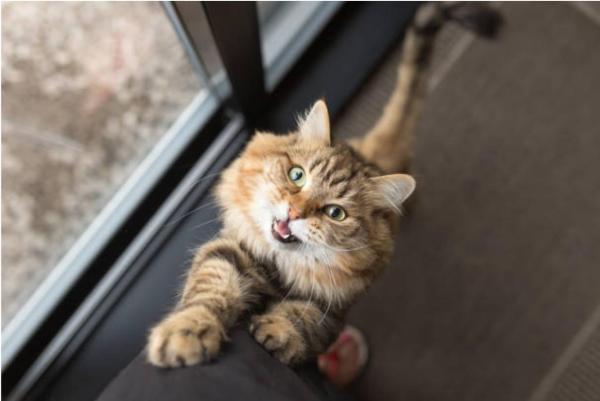
Viral or bacterial infections
Your cat's sudden disinterest in food and water can have more than just behavioral causes. Common viral or bacterial infections, like cat flu or urinary tract infections (UTIs), can manifest with symptoms that affect their appetite and overall well-being.
Watch out for these telltale signs:
- Fever: Feel your cat's nose and ears for unusual warmth.
- Lethargy: Is your usually playful cat unusually tired and inactive?
- Painful urination: Pay attention to straining or vocalizations during urination, which could indicate a UTI.
What to do?
If you observe these symptoms in your cat, we strongly advise consulting your veterinarian. Describe your cat's symptoms in detail and seek guidance on the next steps. Your veterinarian may ask for additional information and, if necessary, recommend bringing your cat to the clinic for a comprehensive examination.
Did you know that feline chlamydiosis is a highly contagious bacterial disease in cats? Read more about it in our other article.
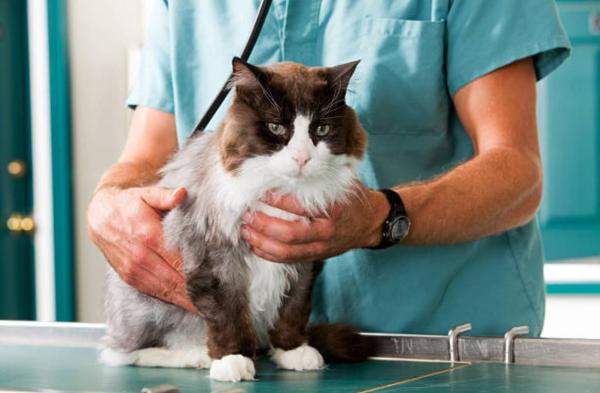
Side effects of medications
Sometimes, even good things like medicine can have unintended side effects. If your cat's on antibiotics, pain meds, or something for a chronic condition, they might show decreased appetite, less water intake, and seem more lethargic. Remember, never stop your cat's medication on your own.
What to do?
Call your vet right away. They can help you figure out if these are just temporary side effects or if something else is going on. Don't forget, a change in eating or drinking habits can point to other health issues in cats, so quick action is key.
You might be interested in this other article on the side effects of certain vaccines in cats.
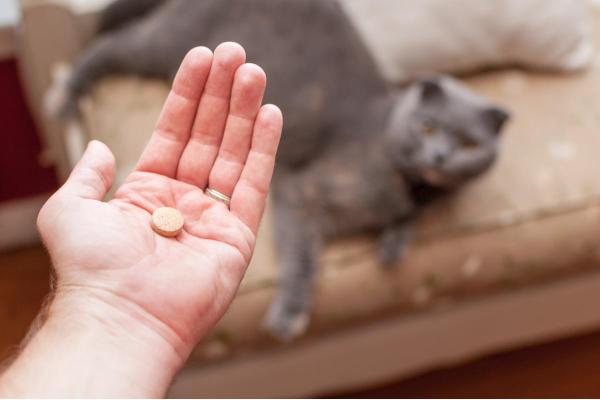
This article is purely informative. AnimalWised does not have the authority to prescribe any veterinary treatment or create a diagnosis. We invite you to take your pet to the veterinarian if they are suffering from any condition or pain.
If you want to read similar articles to Why Is My Cat Not Eating and Drinking?, we recommend you visit our Other health problems category.

